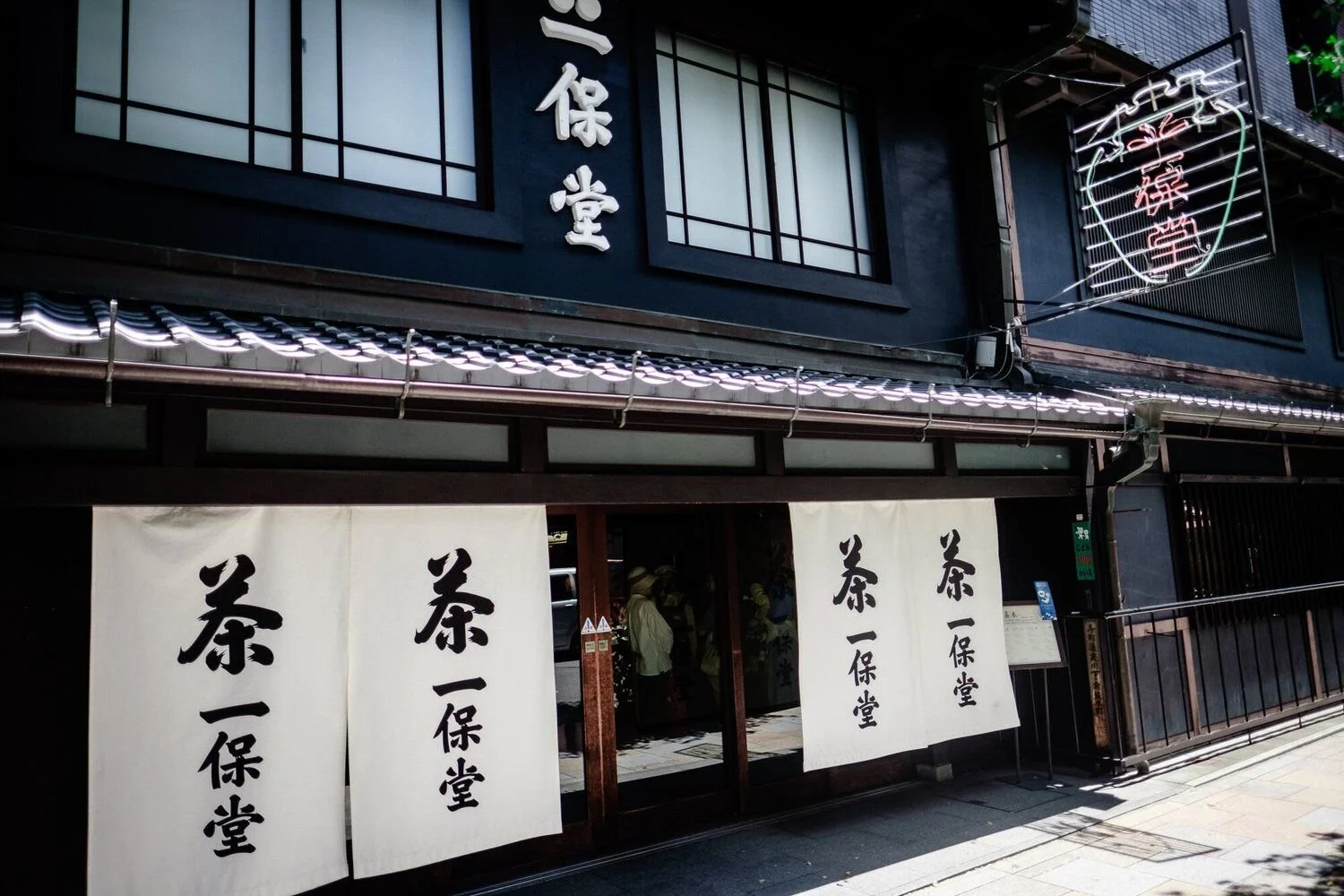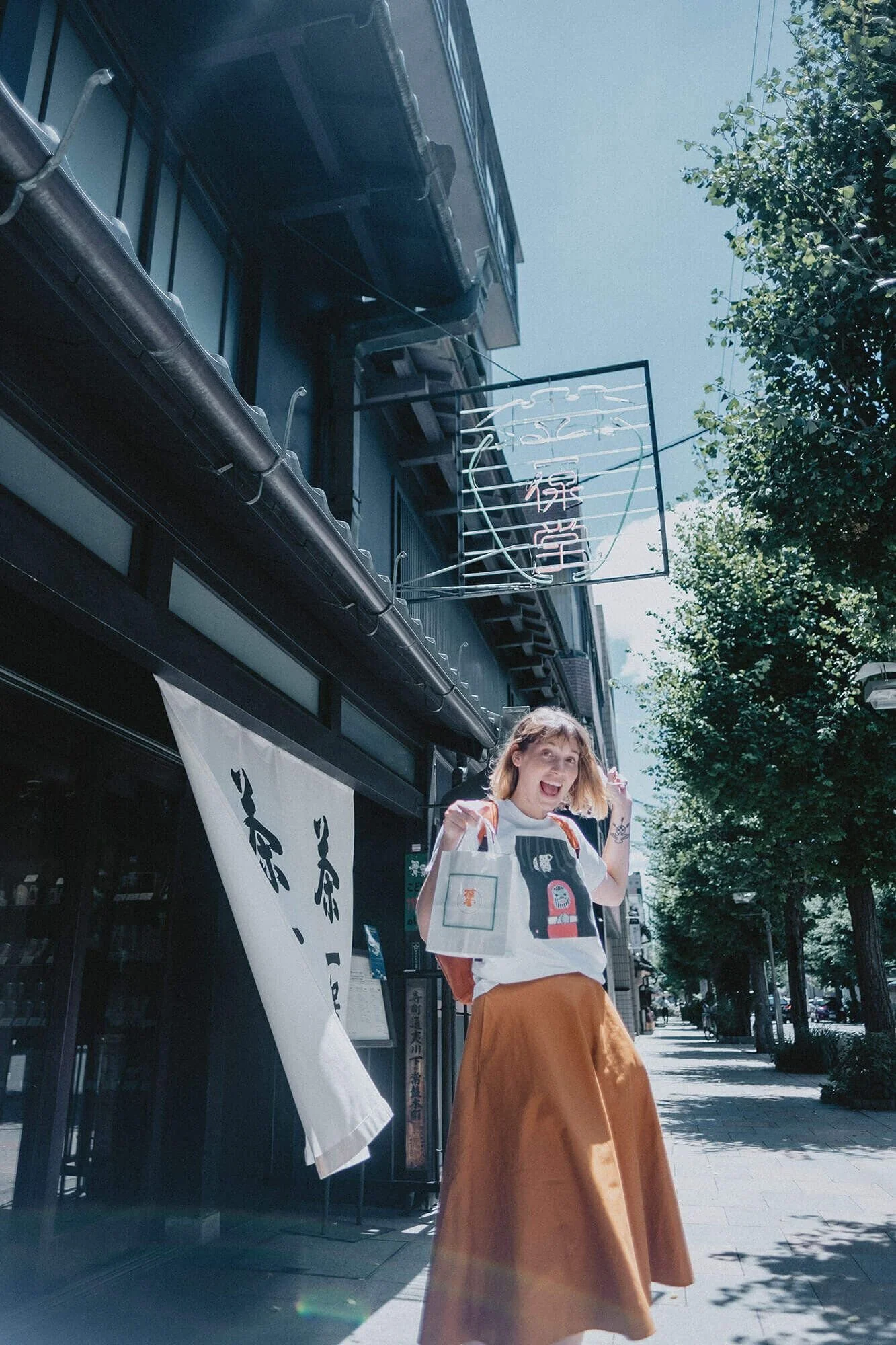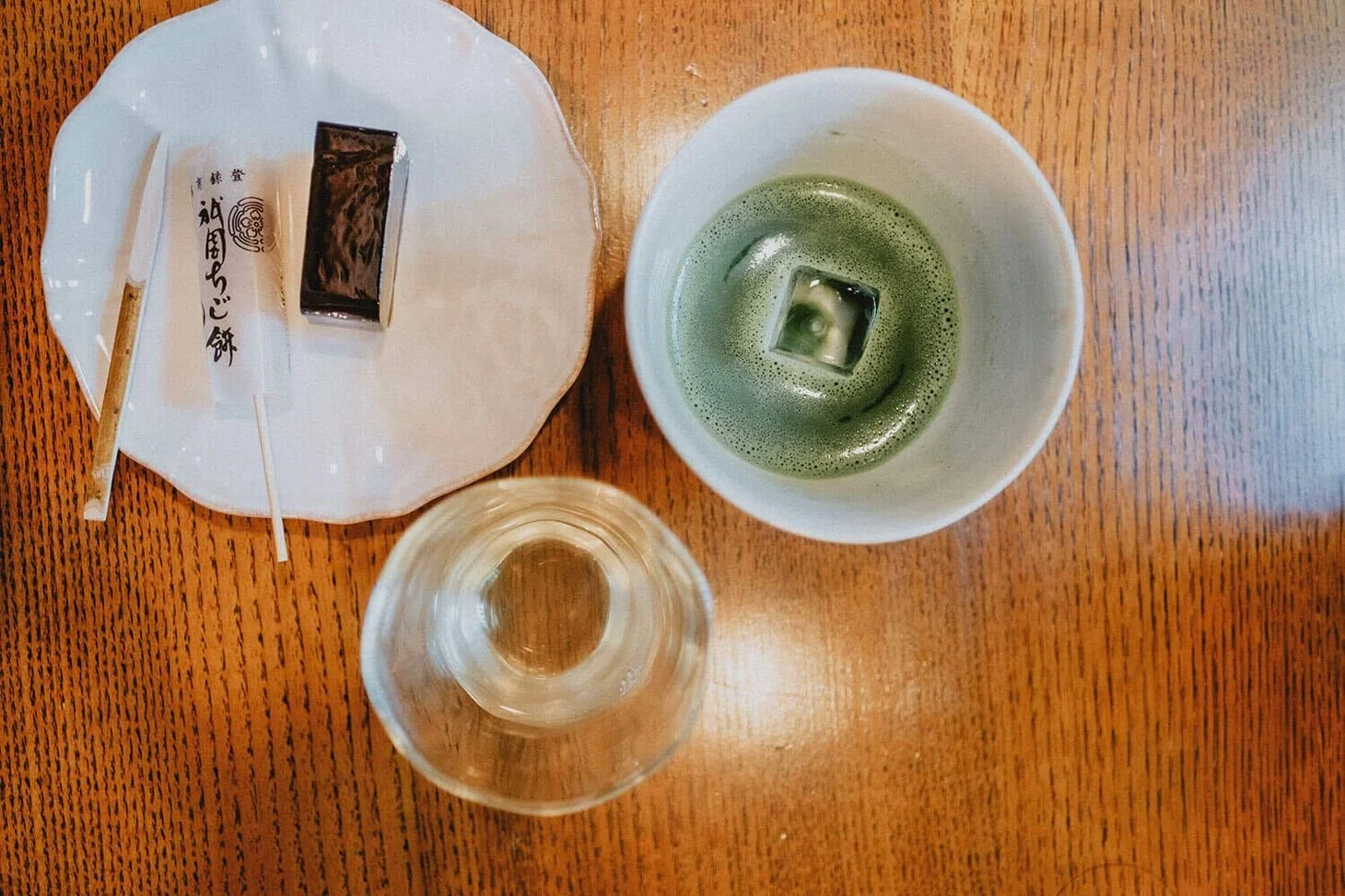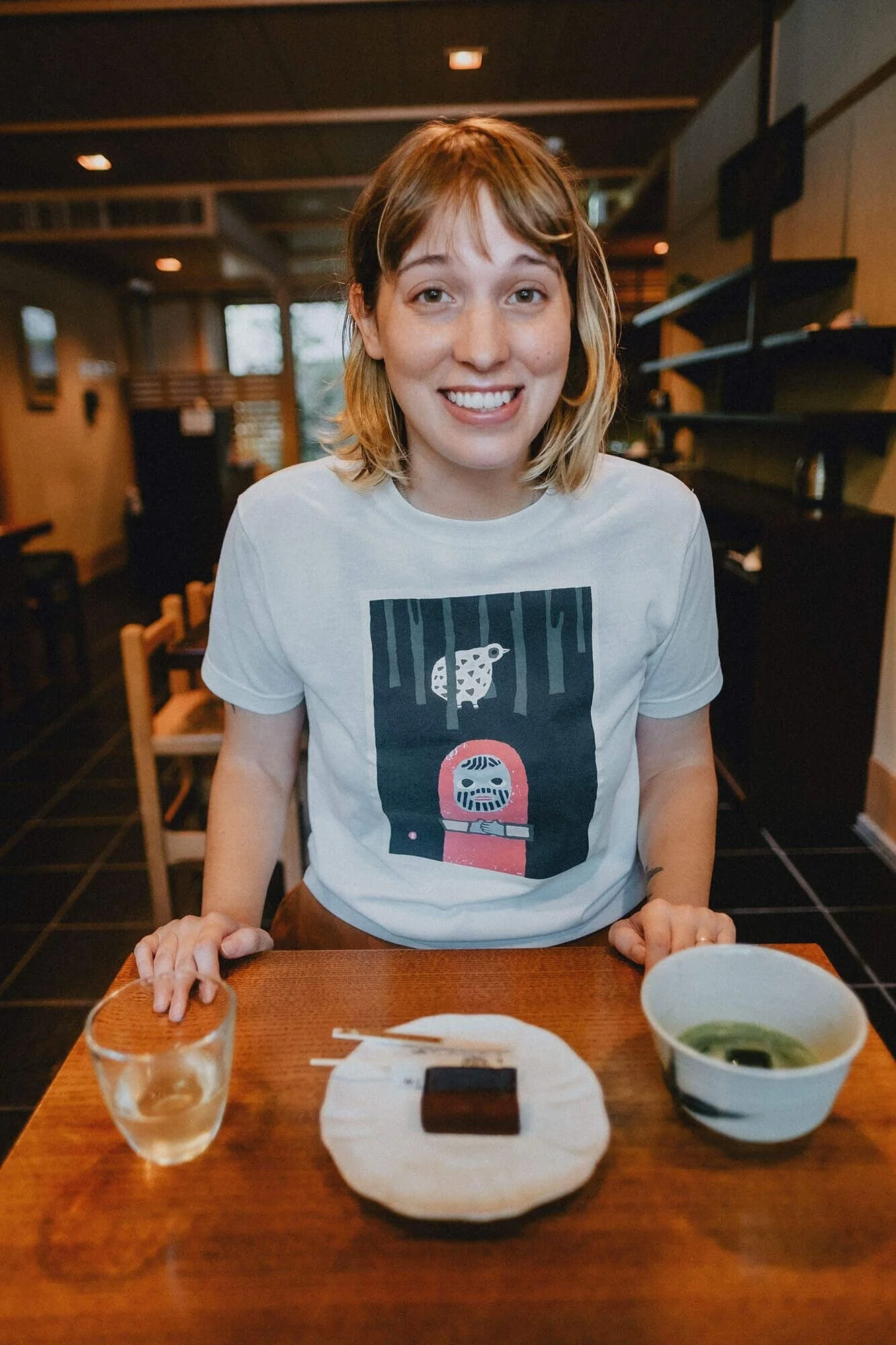300 Years of Tea at Ippodo
A solitary cube of ice swirls in the middle of my blue-green matcha frothed to perfection. I’m sitting on a table facing a thatched window in the Kaboku Tearoom at Ippodo. A light breeze slips in with the afternoon sun. Sitting along the famous Teramachi shopping street, Ippodo has been serving tea in Japan for just over 300 years, since they started handpicking tea in 1717.
A leading brand in Japanese tea
Back in the day, visitors to their shop would bring their jars to fill up with tea in bulk. Nowadays, the shop is more modern and offers a number of Japanese tea educational workshops and services, as well as selling their high-quality dry tea, selling tea to go, and offering sit-down service in the Kaboku tea room, one room off the main sales area.
I came here as a part of my Kyoto tea explorations this summer, which also included drinking tea at the Golden Pavillion’s Immovable Kettle Tea Room.
I wanted to visit Ippodo because of their long-standing history and because they’re one of the only high-quality Japanese tea brands I also see in the North American market. Sure, there’s lots of good Japanese tea to be found if you know where to look, but it's not always obvious.
The Ippodo website, for example, is excellent in English and offers relatively affordable shipping options from Japan to North America. I often order from here when back in Canada without daily access to fresh Japan’s teas. One of my favourites is their kuki sencha, a light and refreshing delight that is especially sweet when brewed cold.
Teramachi Street in Kyoto
The Teramachi store is Ippodo’s flagship location in Japan. Teramachi (literally ‘Temple Town”) is a classic Kyoto shopping street that runs north and south along the eastern side of the Kyoto Imperial Palace.
Here’s their address: 52番地 Tokiwagicho, Nakagyo Ward, Kyoto, 604-0915, Japan
On Teramachi you’ll find a variety of galleries, bookshops, and bespoke clothing shops selling both modern designers and traditional kimonos. Sometimes, both.
Ippodo's Flagship Store
Ippodo’s teas come from the Kyoto region. Kyoto was the first prefecture to grow tea in Japan, and it’s known for its high-quality tea, thanks to its mild climate, misty mountains, mineral-rich soil, and balance of sunshine and rainfall.
Although it may be the 'birthplace' of tea in Japan, tea is grown throughout Japan nowadays, including heavily in Shizuoka, near Mt. Fuji, where the land is flatter, making it easier to harvest tea at large scale.
Even with global climate change, Japan’s teas have been lucky and steadfast. The tea farm where I lived is in a small town called Wazuka, in Kyoto prefecture.
Tourism for tea nerds at its finest.
Tea service at Ippodo
In the Kaboku tea room, visitors can prepare their own tea, brought by the helpful and knowledgeable staff. The tearoom staff also provide service in English, and there’s no need for a reservation. They’ll walk you through using a kyusu and other traditional Japanese tea brewing methods, and also inform you as to why they’re using certain temperatures.
Iced matcha with red yokan sweet.
Our set, including sweets, matcha, houjicha, and cold-brew kuki sencha.
As one of Japan’s OG tea retailers, I was excited to see what service would look like here. I recommend going with one of their featured sets. They change them up seasonally.
First up was a houjicha jelly sweet the colour of mahogany. This treat came served with the cold-brew Kuki sencha I mentioned above. Just a touch of sweetness, with the roasty houjicha flavour underneath. Then came the ‘main course’ of cold brewed matcha.
Matcha whisked in cold water
For the cold matcha, they whisk it with cool water and then add an ice cube on top. Whisking, of course, is done with whisks from Takayama, Japan's tea whisk-making village.
I found whisking matcha with cold water super interesting because I’ve always whisked with hot, or at least warm water. This was a whole new approach for me, and it’s one I’ve since done a few times at home.
Especially during the summer, it brings out a different taste experience and emphasizes the vegetal and sweet elements of matcha with none of the bitter tannins.
After we finished drinking our matcha, one of the waitresses brought out a kyusu packed full of roasted houjicha. A toasty Japanese green tea that’s a perfect meal-ender, or night-cap. Low in caffeine and very relaxing, we were given a full carafe of water and invited to spend as much time there as we wanted, reflecting with the tea.



